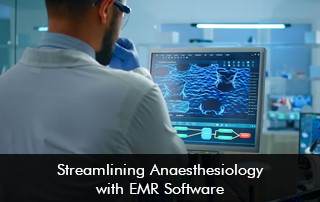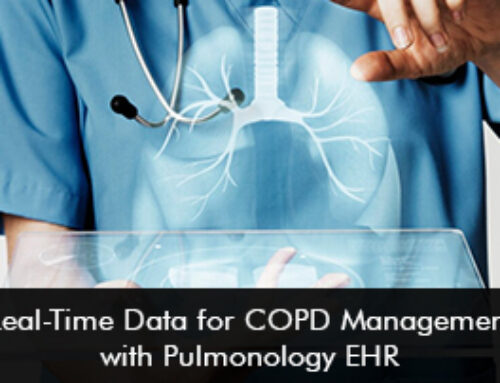Every minute matters in the hectic world of medicine, particularly in crucial specialties like anesthesiology. It is vital for anesthesiologists to have an efficient workflow because they are vital to the safety and comfort of patients throughout surgical procedures. Anesthesiologists can now manage patient information more efficiently and effectively thanks to the advent of Electronic Medical Records (EMR) and Electronic Health Records (EHR) software.
Embracing Digital Transformation
- The days of file cabinets and bulky paper documents are long gone. EMR/EHR software is helping anesthesiology practices embrace digital transformation today.
- By enabling practitioners to safely store, access, and manage patient data electronically, these advanced solutions enhance patient care, accuracy, and efficiency.
Seamless Integration
- Its smooth interaction with current hospital operations and systems is one of the main advantages of EMR/EHR software.
- It is no longer necessary for anesthesiologists to manually enter or retrieve data because they have easy access to patient information, medical histories, and anesthesia plans.
- Collaboration and communication between healthcare teams are improved by this connection, which guarantees a seamless transfer of data between various departments and healthcare locations.
Enhanced Efficiency and Accuracy
- EMR/EHR software facilitates more accurate and productive work for anesthesiologists.
- Patient assessments, anesthetic plans, and post-operative care can be documented more quickly and uniformly with the help of editable templates and pre-populated fields.
- Additionally, integrated alerts and reminders lower the possibility of mistakes and unfavorable outcomes by assisting practitioners in keeping track of vital signs, allergies, and medicine dosages.
Improved Patient Safety and Care
- Improved patient safety and care are facilitated by EMR/EHR software, which digitizes medical records and automates repetitive processes.
- A patient’s medical history, test results, and imaging studies can all be easily accessed by anesthesiologists, giving them the information they need to manage anesthesia and make educated decisions.
- Furthermore, throughout procedures, real-time monitoring and documentation enable prompt interventions and improved results.
Compliance and Security
- EMR/EHR software provides strong security and compliance features in an era of strict regulations and patient privacy concerns.
- These systems guarantee the privacy, availability, and integrity of patient data because they are made to comply with HIPAA requirements as well as other industry standards.
- Sensitive data is protected by sophisticated encryption, access controls, and audit trails, providing patients and professionals with piece of mind.
Future Trends and Innovations
- The future of EMR/EHR software for anesthesiologists appears bright, especially as technology keeps developing.
- Functionality and usability are set to be significantly improved by innovations like artificial intelligence (AI), machine learning, and interoperability.
- These developments have the potential to completely transform anesthetic practice and patient care, from telemedicine capabilities for remote consultations to predictive analytics for risk assessment.
Finally, it should be noted that EMR/EHR software is revolutionizing the field of anesthesiology and providing a host of advantages to both patients and practitioners. These digital solutions enable anesthesiologists to provide high-quality care in the ever-changing healthcare landscape of today, from smooth integration and increased productivity to better patient safety and compliance. Adopting EMR/EHR software will surely continue to be a cornerstone of contemporary anesthesiology practice as technology develops.







